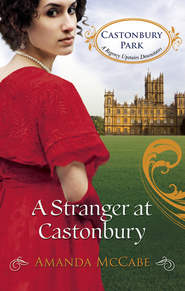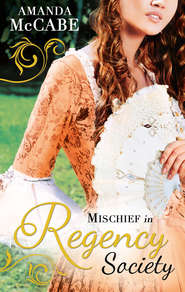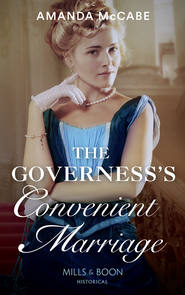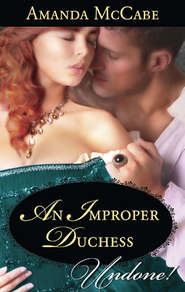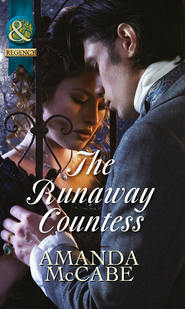По всем вопросам обращайтесь на: info@litportal.ru
(©) 2003-2025.
✖
Tarnished Rose of the Court
Настройки чтения
Размер шрифта
Высота строк
Поля
“Nay, this will do,” she said, slipping on her jet and pearl earrings. “I will dress now.”
She eased out of her robe and let the maid help her into her gown: a bodice and overskirt of black velvet with a stomacher and petticoat of glossy purple brocade trimmed with jet beads. Her sleeves were also black, tied with purple ribbons. Even her shoes and the garters that bound her white silk stockings were black.
Thomas had been dead for many months. She could put aside mourning and wear colours again, the blues and greens she had once loved, but she liked the reminder of where she had been. Where she vowed never to be again. The half-world of mourning suited her.
Celia held up her arm for the maid to lace on the tight sleeves and pluck bits of the white chemise between the ribbons. As she stared at the fireplace she let herself drift away, just for a moment, and remember when she first met John.
She’d been just a silly girl then, who had never been to Court, never away from her family and their country gentry neighbours. John Brandon had been sent to stay with his uncle at a nearby estate, exiled from Court for some unknown scandal. He’d been meant to rusticate until he had learned his lesson and repented.
That dark hint of some roguish secret had made her cousins all afire with speculation even before they’d met him, and Celia had not been immune to it. She’d liked to sit by the fire of a winter evening and listen to romantic tales as much as any young lady, and a handsome rake from London seemed a perfect part of such stories. Then, when she had seen him at last, a glimpse across his uncle’s hall at a banquet …
It had been as if the whole world tipped upside down and everything looked completely different. His eyes, his smile, the way he strode through the crowd right to her side and kissed her hand—she’d been dazzled.
Celia shook her head hard now as she remembered. Foolish, foolish girl.
And now foolish woman. For hadn’t she almost melted all over again when he touched her today?
But the next time they met, touched, she would be the one in control. She had to be.
As soon as the maid had finished adjusting her gown she fastened a black feather fan and a silver pomander to the chain girdle at her waist. As she had no sword, they would have to do.
But when the maid turned away she bent and gathered up her skirts to tuck a small dagger in the sheath at her garter. She could not go down there completely unarmed.
As she made her way down the many staircases and along the twisting corridors of the palace the crowd grew thicker the closer she came to the great hall. After the nightly revels of Christmas Celia would have thought the courtiers would be weary of Queen Elizabeth’s glittering displays, but there was a hum of excitement in the air, in the buzz of laughter and chatter around her as she was swept along.
She could hear music—the lively strains of a galliard—and the thunderous pattern of dancing feet. All around her was the rustle of fine satins, the flash of jewels, the smell of expensive perfumes, warm skin and wine. It all made her head spin, but she was caught in the tide now and could not get away. She was swept inexorably into the hall.
She slid her way through the crowd to a spot near one of the tapestry-hung walls, a little apart from all the frantic laughter, the jostling for position. She couldn’t breathe when she was caught in the very midst of it all, buffeted by so many touches, so much desperate energy.
She took a goblet of wine from one of the servants in the Queen’s livery and sipped at the rich red French wine as she studied the gathering. She prayed John would not be there, would not see her. She had barely recovered her hard-won composure after their last meeting. His body close to hers, his heat and scent in that dark closet …
Celia took a long gulp of the wine, and then another. She usually only drank small beer, slowly, always remembering what a monster drink had made of her husband. How it had destroyed her father after what had happened to her poor brother. But tonight she needed every fortification she could find.
As the wine warmed her blood she examined the company. The Queen led the dancing with her handsome Robert Dudley, who was now the Earl of Leicester, reputedly to make him of a stature worthy to be the Queen of Scots’s consort. Queen Elizabeth’s red-gold hair shimmered brighter than her gold brocade gown as she laughed and leaped, twirling higher and lighter than everyone else. The troubles of the last few weeks, and the troubles sure to come, seemed forgotten in the music and merriment.
Celia’s gaze trailed over the Countess of Lennox, a great, large woman in black who stood near another wall and studied the revels with her lips pressed tightly together. She gave Celia a quick nod before turning to her son. Lord Darnley sulked and drank by her side, though even Celia knew he would not be there long. He could not stay away from his debauched pleasures for more than an hour.
He was handsome, Celia would admit that—very tall and lean, with golden hair and fine Tudor features. But, like his mother’s, his mouth had a cruel cast that Celia recognised all too well. She didn’t trust him, and she didn’t know what game Queen Elizabeth played with him, Leicester and Mary.
She definitely did not know why she had to be involved in the messy quagmire. But beggars could not be choosers.
“Good evening to you, cousin.” She heard a deep, quiet voice, lightly touched with a Scandinavian accent, behind her.
She turned to face the very man she had once blamed for that beggaring: her cousin Anton Gustavson. They had never known each other; his mother—her father’s sister—had married a Swedish nobleman and disappeared to the frozen north before Celia was born. Then he’d appeared here at Court, with a party sent to woo the Queen on behalf of the Swedish King—and to claim a family estate Celia had hoped to have for her own. The last remnant of her family’s lost fortune.
She had blamed Anton bitterly for this final disappointment. But now, as she looked into his wary dark eyes, she could no longer blame him. He sought his own redemption here in England, and perhaps he had found it with his new estate and his Lady Rosamund.
Celia still had to find hers.
“And good evening to you, too—cousin,” she said. “Where is Lady Rosamund? Everyone says you two are quite inseparable of late.”
“Not entirely so,” Anton said. He gestured towards the dance floor, now a whirling stained-glass mosaic of brilliant jewels and silks. “She is dancing with Lord Marcus Stanville.”
Celia saw that Rosamund did indeed dance with Lord Marcus, their two golden heads close together as he whirled her up into the air.
“Lord Marcus Stanville—one of the greatest flirts at Court,” Celia said as she finished her wine and exchanged the empty goblet for a full one. “I’m surprised.”
Anton laughed. “Rosamund is immune to his blandishments.”
“But not to yours?”
He arched his dark brow at her. “Nay. Not to mine. We are soon to be married.”
Celia swallowed hard on her sip of wine and carefully studied the dancers. A cold, hard knot pressed inside her, low and aching. Once she’d had the foolish hope she could marry someone she loved too.
“My felicitations to you, cousin,” she said. “Surely you did not expect quite so much here when you left Sweden?”
“I had hoped to find family here,” Anton said. “And you and I are all that is left. Can we not cry pax and be friends?”
Celia studied him over the silver rim of her goblet. Aye, he was her family. All she had. For an instant she thought she glimpsed a resemblance to her father in his eyes, and that hard knot inside her tightened. How she missed her family sometimes. She was so alone without them.
“Pax, cousin,” she said, and slowly held out her hand to him.
Anton gave a relieved laugh and bowed over her hand. “You are most welcome at our home at any time, Celia.”
Celia shook her head. “You needn’t worry, Anton. I shall not be the dark fairy at the feast. The Queen is sending me on an errand, and I probably shan’t be back for some time.”
A frown flickered over his face. “What sort of errand?”
Celia opened her mouth to give some vague answer, but she stopped at a sudden sensation of heat on the back of her neck. She pressed her fingers over the spot, just below the tight twist of her hair, and shivered.
She glanced over her shoulder and met John Brandon’s bright blue eyes staring right at her. Burning. His head tilted slightly to one side, as if he was considering her, as if she was a puzzle, then he moved towards her.
Celia reacted entirely on instinct. She shoved her empty goblet into Anton’s hand and said, “Excuse me. I must go now.”
“Celia, what …?” Anton said, his voice startled, but Celia was gone.
She only knew she had to run, to get away, before John could catch her and strip her soul bare with those eyes as he had come so close to doing earlier.
The hall was even more crowded and noisy than before, and Celia had to elbow her way past knots of people. She was a small woman, though, and slid past the worst of the crowds and into the corridor. She could still hear the high-pitched hum of voices, but it seemed muted and blurred, as sounds heard underwater. The air pressed in on her, hot and close.
Yet she could still vow she heard the soft, inexorable fall of his boots on the floor, coming closer.
“I am going mad,” she whispered. She lifted the heavy hem of her skirts and hurried to the end of the corridor, where it turned onto another and then another. Whitehall was a great maze. It was quieter here, darker, the narrow, dim length lit at intervals by flickering torches set high in their sconces. She heard a soft giggle from behind one of the tapestries, a low male groan.
She didn’t know which way to go, and that moment’s hesitation cost her. She felt hard fingers close over her arm and spin her around.
She lost her footing and fell against a velvet-covered chest. Her hands automatically braced against that warm, solid wall and a diamond button pressed into her soft palm. It was John. She could smell him, knew his touch. The hawk had swooped down and caught its prey.







